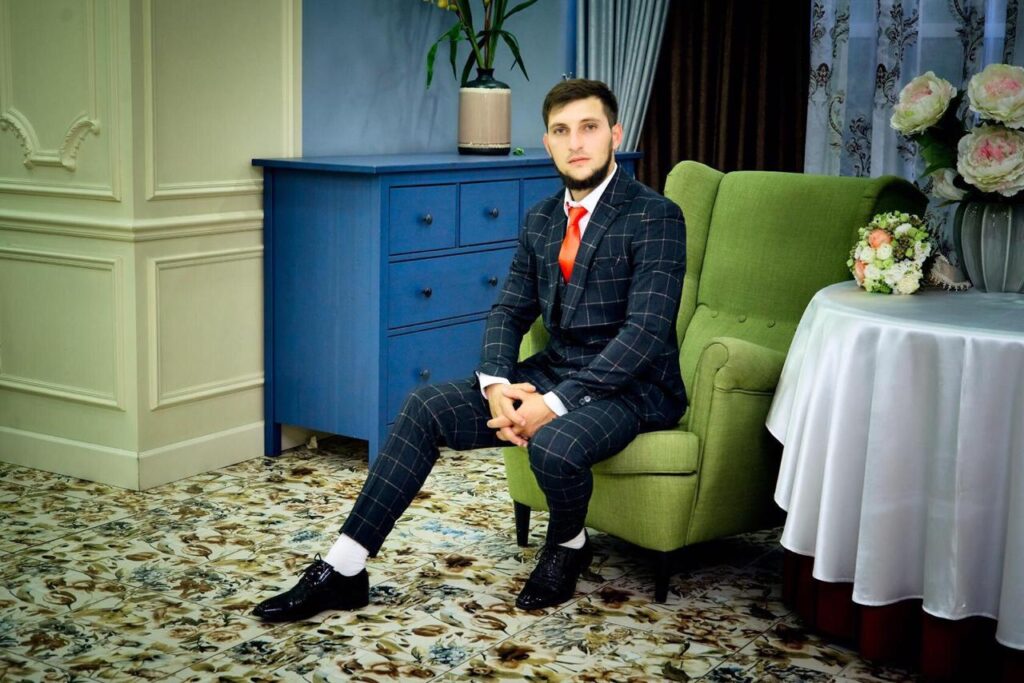A Chechen man has been sentenced by a court in Moscow to three-and-a-half years in prison for sharing videos about the First Chechen War on social media. During his sentencing on 11 June, Aytakhadzhi Khalimov was also banned from ‘activities related to web administration’ for two years.
Court documents report that Khalimov posted three videos on social network VKontakte in 2019 titled: ‘Untitled’, ‘Free Ichkeria. Chechen war’, and ‘They won that war’.
The first video, Untitled, recounts what it calls the ‘heroism’ of Chechen fighters who won a victory against the ‘huge Russian army’.
The other two videos show what is purported to be archival footage from the war, including the bombing of the houses by the Russian army and the bodies of people killed in the fighting.
The First Chechen War, 1994–1996, was fought between the forces of the newly proclaimed Chechen Republic of Ichkeria and the army of the Russian Federation and was one of the bloodiest wars within the territory of the former Soviet Union after its collapse.
The war claimed the lives of 25,000–80,000 people and ended with the de-facto independence of Chechnya. This situation proceeded until the conclusion of the Second Chechen War in 2001.
During the trail, Khalimov did not deny that he shared the videos but pled not guilty to calling for and justifying terrorism.
His lawyer, Maria Bontsler, told OC Media that she categorically disagreed with the court’s verdict and planned to appeal it. She said that Khalimov ‘wanted to know the history of his country’, adding that there was nothing illegal in this.
‘Mentioning the First Chechen War is not prohibited [by law]. It was clearly a war, not terrorism’, she said.
Bontsler said the court refused to allow Khalimov’s defence to conduct an independent examination of the videos to search them for any calls for terrorism.
‘They [investigators] conducted their expertise in the Southern Centre of Expertise, which always finds the blame on anyone [they examine]. There is nothing more in the case’, said Bontsler.
Khalimov was detained by the Federal Security Service (FSB) in Kaliningrad, where he resides, on 24 December 2019.
According to officials, criminal proceedings were initiated against Khalimov after appeals from two Russian army soldiers stationed in Kaliningrad — named only Serebryakov and Shishmakov.
Court documents state that Serebryakov and Shishmakov, ‘browsing the social network VKontakte, saw videos on Aytakhadzhi Khalimov’s page in which “Russia was discussed as an aggressor against Chechnya in the First Chechen War”, about which they both wrote appeals to the FSB of the Kaliningrad Oblast in October and November 2019’.
According to Bontsler, the soldiers were both ‘FSB provocateurs’.
The videos Khalimov was convicted over are still accessible on his VKontakte page.
Prosecution for ‘spreading historical facts’
Khalimov’s case is not the first in which the Russian authorities have prosecuted people for statements about the history of Russian-Chechen relations.
In May 2017, Ibrahim Yangulbayev was detained in the Chechen capital Grozny and subsequently accused of ‘inciting hostility to the social group: “Russian military personnel” '.
According to investigators, Yangulbayev committed a crime by posting photos of civilians killed in Chechnya on VKontakte.
Yangulbayev claimed that he was beaten and tortured during his detention before being charged.
Yangulbaev was released in January 2019 after spending one and a half years in pre-trial detention. His case was dismissed due to the partial decriminalisation of the article he was charged with.
[Read more on OC Media: Daghestani authorities investigate man for 5-year-old social media post]
In 2014, Ruslan Kutayev, a prominent activist and head of the Assembly of Peoples of Caucasus, was sentenced by a court in Chechnya to four years in prison for drug possession.
The day before his arrest, Kutayev held a conference dedicated to the 70th anniversary of the deportation of the Chechen and Ingush peoples to Central Asia by the Soviet authorities.
In 2004, the European Parliament recognised the deportations as an act of genocide. Since 2012, the Chechen authorities have not held any official commemorative events dedicated to the deportations; which were previously marked annually.
[Read on OC Media: After 73 years, the memory of Stalin’s deportation of Chechens and Ingush still haunts the survivors]
Russian rights group Memorial recognised Kutayev as a political prisoner on the grounds that ‘the criminal case against [him had] numerous indications of falsification and seems to be completely fabricated’.
Kutayev told OC Media that he believed the Russian authorities were persecuting people for disseminating historical facts about crimes in which the Russian authorities were involved.
He said the authorities wished to hide their crimes in order that the memory of these crimes is forgotten.
Kutayev said this was happening now because ‘the Russians themselves began to understand that it was not the Chechens who blew up the houses, but the FSB’.
‘This turning point in the modern life of Russian society scares the authorities, because they have always opposed and scared Russians with Islamic terrorism and Chechens. This was effective for a long time, but today, the Russians have begun to realise that their enemies are not Muslims, but Putin and the corrupt authorities.’
[Read more on OC Media: Two Chechens convicted for deaths of 84 Russian servicemen during the Second Chechen War]




 18 June 2020
18 June 2020



